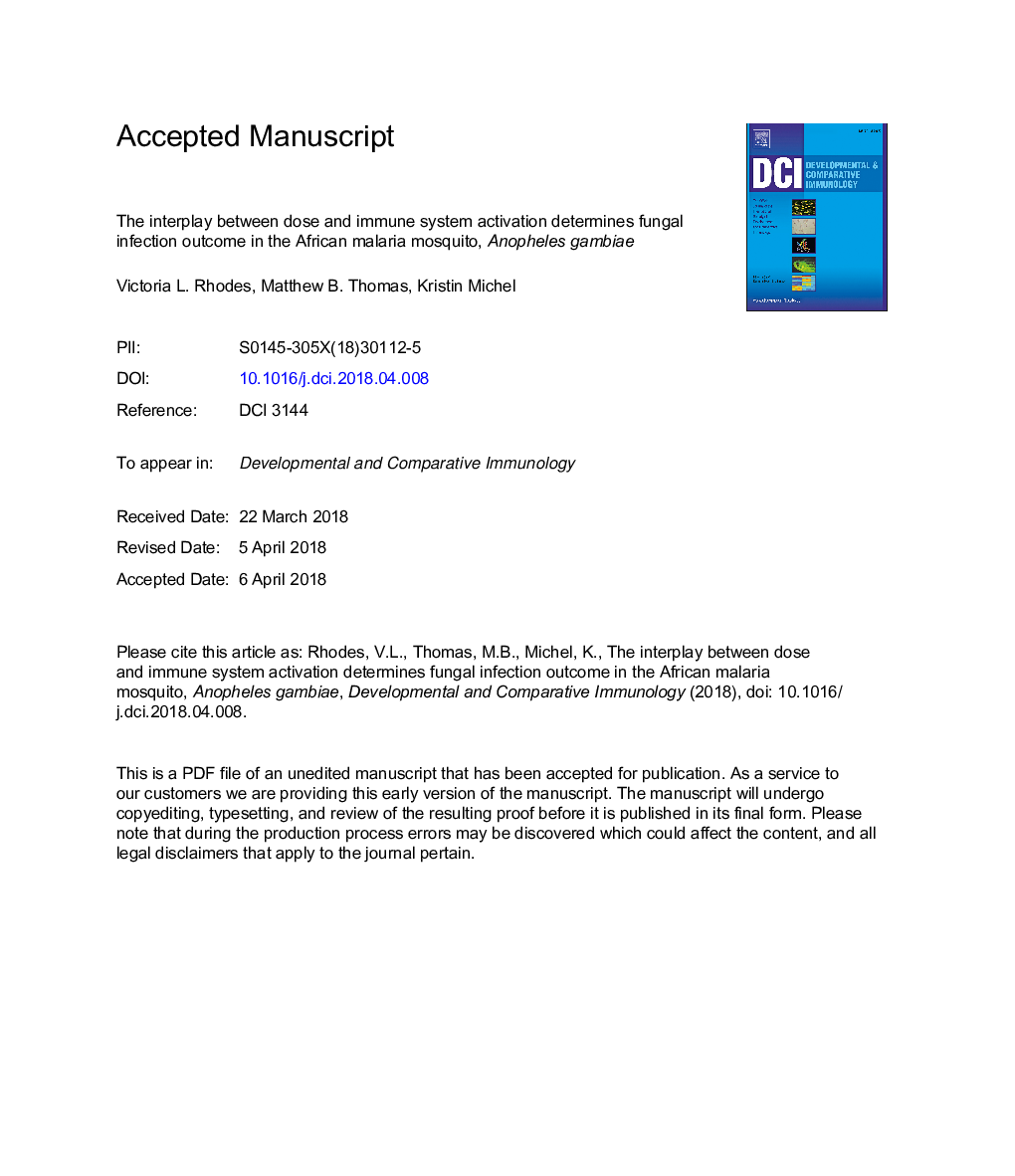| کد مقاله | کد نشریه | سال انتشار | مقاله انگلیسی | نسخه تمام متن |
|---|---|---|---|---|
| 8497695 | 1553547 | 2018 | 42 صفحه PDF | دانلود رایگان |
عنوان انگلیسی مقاله ISI
The interplay between dose and immune system activation determines fungal infection outcome in the African malaria mosquito, Anopheles gambiae
دانلود مقاله + سفارش ترجمه
دانلود مقاله ISI انگلیسی
رایگان برای ایرانیان
کلمات کلیدی
موضوعات مرتبط
علوم زیستی و بیوفناوری
بیوشیمی، ژنتیک و زیست شناسی مولکولی
زیست شناسی تکاملی
پیش نمایش صفحه اول مقاله

چکیده انگلیسی
The Toll pathway is a central regulator of antifungal immunity in insects. In mosquitoes, the Toll pathway affects infections with the fungal entomopathogen, Beauveria bassiana, which is considered a potential mosquito biopesticide. We report here the use of B. bassiana strain I93-825 in Anopheles gambiae to analyze the impact of Toll pathway modulation on mosquito survival. Exposure to a narrow dose range of conidia by direct contact decreased mosquito longevity and median survival. In addition, fungal exposure dose correlated positively and linearly with hazard ratio. Increased Toll signaling by knockdown of its inhibitor, cactus, decreased survivorship of uninfected females, increased mosquito survival after low dose B. bassiana exposure, but had little effect following exposure to higher doses. This observed trade-off could have implications for development of B. bassiana as a prospective vector control tool. On the one hand, selection for small increases in mosquito immune signaling across a narrow dose range could impair efficacy of B. bassiana. On the other hand, costs of immunity and the capacity for higher doses of fungus to overwhelm immune responses could limit evolution of resistance.
ناشر
Database: Elsevier - ScienceDirect (ساینس دایرکت)
Journal: Developmental & Comparative Immunology - Volume 85, August 2018, Pages 125-133
Journal: Developmental & Comparative Immunology - Volume 85, August 2018, Pages 125-133
نویسندگان
Victoria L. Rhodes, Matthew B. Thomas, Kristin Michel,